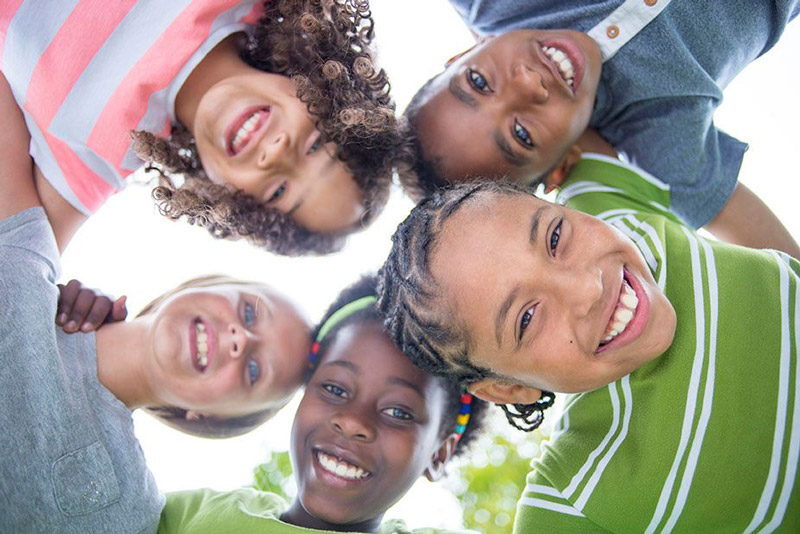Some siblings are the best of friends, others are not, and many of us are somewhere in the middle. Sibling relationships are often the longest running relationships people have. While there are always exceptions, it is likely your loved one with intellectual or developmental disabilities (I/DD) will have a life-long relationship with their siblings.
How can you nurture this sibling relationship? Involving your kids in Sibshop, that’s how.
What is a Sibshop?
Sibshops are “events” where siblings of people with I/DD (and others with unique health needs) can gather. They combine peer support, education and activities, and they’re all about fun. Sibshops are often described as high energy celebrations or events for brothers and sisters of people with I/DD. They’re not therapy, yet they can be therapeutic.
Some parents think their kids don’t need Sibshops, that their household is inclusive, accepting and loving. Their kids are happy, pitch in and help their brother or sister with disabilities, and they have a loving sibling relationship. It’s true, Sibshops aren’t right for everyone. How do you know if they’re right for your kids?
Check out our top 3 ways Sibshops help siblings of people with I/DD
1. They’re not alone
Siblings of people with I/DD are often the only person they know with a disabled brother or sister. That can be isolating. Sibshops give kids the chance to meet and interact with others in the same or similar situations, not just in age, interests or grade level. They can meet peers who know what it’s like to have a sibling with I/DD. It’s an opportunity to share stories, hopes, dreams, advice, concerns and more with others who understand how they’re feeling and have experienced similar circumstances and emotions. Sibs often form great friendships through Sibshops that last long into adulthood.
2. Emotions are okay
Sibshop conversations and peer support help kids deal with their emotions. Whether they’ve told you or not, all kids experience a range of emotions relative to their siblings. Remember when you were a kid? Brothers and sisters can be fun and annoying, make you angry and happy, inspire love and jealousy.
Kids who have siblings with I/DD often report experiencing feelings of guilt, anger or embarrassment relative to their sibling’s disability. They can feel uncertain, invisible or alone. What’s worse, they may be doing a good job of hiding their feelings, avoiding complaints and limiting demands in an effort to make your life a little easier. Siblings of kids with I/DD often recognize that their parents are busy, stressed or short on funds and do their best to avoid complicating your life even further.
Do siblings in your family have emotions they need to better understand? Would you know if they did?
3. Information about their sibling’s disability
For many parents, providing information to siblings about a disabled child feels like something we can do at home. It is, but do you have the time, and have you discussed the disability and how it affects your family? This isn’t a one-time conversation. Siblings need to understand how the needs of their brother or sister with a disability change over time. Have you explored the implications of each new milestone? For example, have you talked about siblings supporting their brother or sister? How care needs change as your child grows into adolescence and then adulthood? Will they attend the same school? What happens when they become adults? Siblings have the longest relationships within a family. Sibshops can help siblings understand the implications of their brother or sister’s disability in an age appropriate way.
These are heavy topics, yet Sibshops address them in an environment that is fun, relaxed and celebratory. Like all great celebrations, Sibshops combine food, activity and camaraderie.
What the research tells us
Still not sure or still feel like you’ve got it handled? Research has shown that more than 90 percent of Sibshop participants report a positive effect on their feelings for their sibling and 94 percent would recommend Sibshops to others. And, these results are long term with 75 percent of Sibshop participants experiencing benefits into their adult lives.
The bottom line
As we mentioned, siblings have the longest relationships with their brothers and sisters. As difficult as it may be to admit, we won’t be around forever, and siblings often take over guardianship of their brother or sister.
Dare we suggest you give it a try and let your kid(s) decide whether it works for them?
More information
- Learn more about Sibshops
- Connect your teen with the Sibteen Facebook group or, if they’re a little older, the Sib20 Facebook group.
- Find a Sibshop in your area

